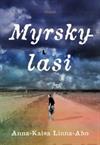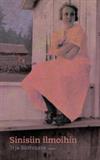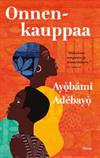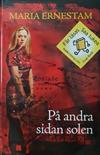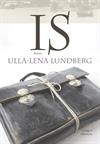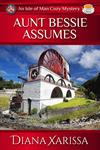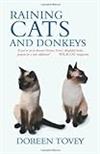Adam Bede
1 journaler for this copy...
Thinking about doing a George Elliot course, so have bought four of her books. Never read anything by her before.
** spoiler alert ** Intensely slow moving and long tale of rural middle England (geographically not socially) set at the turn of the centuries from the 1700s to the 1800s. It's called Adam Bede, but it actually follows a number of families in the little rural community and not just Adam, those who have their generational roots there seem to survive and all is as it should be, and some who don't, turn out to be bad 'uns. Sort of, because you have a lot of sympathy for those to whom things go very wrong.
Not that I was alive in those times but it feels like a good honest portrayal of farming communities at the time. It's certainly not idealised as I wouldn't say anyone is perfect and bad things can happen to good people. Adam Bede, tall strapping lad in his twenties is a hard worker and honest type who is particularly competant at what he does. He's also a bit black and white when it comes to good and bad behaviour, and beyond that isn't massively interesting. He lives with his mother, a clinging woman who is terrified of her sons growing up and leaving home, and his younger brother Seth. The father is present at the start, but he's been drunk for the last 10 years (never explained what sent the father down the path of drink) and early on drowns in a little stream on his way home from the pub one night.
Then we have the Poysers, good hearty farming family, hard working and clean and tidy folk. The mother always has something to say about this and that, there's a toddler daughter who's doted on and a couple of teenage girl maids who mother is always scolding as they don't come up to scratch. One is her husband's orphaned niece, Hetty, who is intensely beautiful, intensely vain and gets herself into some very serious trouble. You might say if she wasn't such a bubble head, life might have worked out better, but then she's 17 - who didn't have a muppet moment when they were a teenager? - and given that she's never been given a proper education to give her brain a chance to develop, and she knows all she is for in life is hardwork then marriage and children, why shouldn't she find a little joy where she can in life? They have another orphaned niece, Dinah, who is really tiresome. She's a Methodist (everyone's a sinner, you should deny yourself in life bla bla) and likes to go around preaching and letting folk know they're a sinner. She's rather plain in comparison to Hetty, but really, I think she lives off vainity in the same way, it's just that she loves denying herself and getting a kick out of saving souls. Seth, Adam's brother, wants to marry Dinah, but her life is for God and not marriage.
Then we have the social betters. There's the Donnithornes, who are the landed gentry and the landowners, to whom everyone rents their farms. The old man is in his eighties and not well liked. His grandson, Arthur, is turning 21 in the book and in the local militia. He is well liked and loves being well liked and generally incapable of saying anything that might upset someone to their face. Like a lot of guys of that age, he doesn't think through the consequences of his actions long term, is ruled by hormones and is a bit of a muppet. There's also the local rector, who I found one of the most likeable characters.
This being the 1800s religion has a big role to play in everybody's lives. There's a lot of thee and thouing and going to church, or if you're a Methodist, chapel and listening to lay preaching. I personally don't have a lot of time for organised religion, so I do find these sermons and people bleating on about their beliefs a bit dull, but at the same time - this is how it was. And you can see why people would turn to religion when life gets really frighteningly tough as the only comfort they can cling to.
Women don't come off too well in this and I can't quite make up my mind about George Elliot. There's a lot of derogatory comments about women, which are fitting with the time, and the women are all wives and maids with not a massive lot going on between the ears. Dinah is a preacher during this story, but by the end in the epilogue, she's had to give all that up as the Weslyans voted to stop women being allowed to preach. There is a particularly nasty character (I don't think he's intended as a villian but I wasn't a fan) in the school teacher who runs a nightschool for the locals - note that no women get the chance to broaden their minds - and he is a mysogynist through and through. Every time he opens his mouth he has something nasty to say about women. ("If I'd known Vixen was a woman, I'd never have held the boys from drowning her. p.205 as one example). Beyond him, although we all know this was written by a woman, it sometimes feels that she is writing as if trying to mirror a man's brain, and doesn't think all that highly of women. I know in the introduction as well, I read that before she'd published this, her first full novel, she'd written in an article something about "silly women novelists". So much for the sisterhood.
From all the nothing happening and slow plot there is a serious bit of drama coming. Hetty and Arthur Donnithorne keep bumping into one another, hormones are raging and as you'd expect one thing leads to another. She gets it into her head that he's going to marry her and make her a lady. He knows that's not possible, but doesn't want to upset her, so keeps leading her on by doing well-meant but really stupid things like buying her expensive earrings. It's only when Adam accidentally finds out and tells him the error of his ways that his hand is forced to end the flirtation. This being for a Victorian public, it can't be explicitly said - so not-said in fact that the pregnacy is neither mentioned nor noticed by anyone which I did find a touch unbelieveable - that the relationship is conusumated and Hetty ends up pregnant. She does a daring thing and runs off and manages to get herself to Windsor where she thinks Arthur is now garrisoned, except she gets there too late and he's already gone off to Ireland. She manages to get herself back up to a nearby town but doesn't dare go back - again not really explained why - thinks about committing suicide, then kind of disappears for a couple of weeks. When she turns up again she's been arrested for murdering (yes, murder, not even manslaughter) her newborn baby - because these are not good times historically to be a woman. Never mind she's a teenager all alone with no money or home giving birth, maybe there's postnatal depression in there - but there's certainly week one baby blues going on - and with no one to support her she doesn't know what to do, so she leaves a living baby under a bush and wanders off. Hardly murder, but given women's status and lack of rights it's not surprising that they're all baying for her blood without mercy and she is found unanimously guilty and sentanced to death. Her uncle and family never see her again or speak of her as she has brought shame to them - this being the worst thing in the entire epside. The only refreshing thing about it all is that Adam is so distraught, and with his hard views, actually furious that Arthur Donnithorne isn't brought to account over all of this as well. Arthur's only slight saving grace is that he dashes off and gets a pardon of sorts for Hetty - rather than being hung she gets to be transported. Arthur joins the army and avoids the area for seven years before the shame has lessened and he can return. Poor old Hetty can never return and is never spoken of again. Her little pink handkerchief found tossed in the waste paper basket at the end about says it all.
I'm starting a course on Eliot next week so I hope/assume my thoughts will change, deepen or whatever on this book. In the meantime, onwards to get more of the course reading done.
Not that I was alive in those times but it feels like a good honest portrayal of farming communities at the time. It's certainly not idealised as I wouldn't say anyone is perfect and bad things can happen to good people. Adam Bede, tall strapping lad in his twenties is a hard worker and honest type who is particularly competant at what he does. He's also a bit black and white when it comes to good and bad behaviour, and beyond that isn't massively interesting. He lives with his mother, a clinging woman who is terrified of her sons growing up and leaving home, and his younger brother Seth. The father is present at the start, but he's been drunk for the last 10 years (never explained what sent the father down the path of drink) and early on drowns in a little stream on his way home from the pub one night.
Then we have the Poysers, good hearty farming family, hard working and clean and tidy folk. The mother always has something to say about this and that, there's a toddler daughter who's doted on and a couple of teenage girl maids who mother is always scolding as they don't come up to scratch. One is her husband's orphaned niece, Hetty, who is intensely beautiful, intensely vain and gets herself into some very serious trouble. You might say if she wasn't such a bubble head, life might have worked out better, but then she's 17 - who didn't have a muppet moment when they were a teenager? - and given that she's never been given a proper education to give her brain a chance to develop, and she knows all she is for in life is hardwork then marriage and children, why shouldn't she find a little joy where she can in life? They have another orphaned niece, Dinah, who is really tiresome. She's a Methodist (everyone's a sinner, you should deny yourself in life bla bla) and likes to go around preaching and letting folk know they're a sinner. She's rather plain in comparison to Hetty, but really, I think she lives off vainity in the same way, it's just that she loves denying herself and getting a kick out of saving souls. Seth, Adam's brother, wants to marry Dinah, but her life is for God and not marriage.
Then we have the social betters. There's the Donnithornes, who are the landed gentry and the landowners, to whom everyone rents their farms. The old man is in his eighties and not well liked. His grandson, Arthur, is turning 21 in the book and in the local militia. He is well liked and loves being well liked and generally incapable of saying anything that might upset someone to their face. Like a lot of guys of that age, he doesn't think through the consequences of his actions long term, is ruled by hormones and is a bit of a muppet. There's also the local rector, who I found one of the most likeable characters.
This being the 1800s religion has a big role to play in everybody's lives. There's a lot of thee and thouing and going to church, or if you're a Methodist, chapel and listening to lay preaching. I personally don't have a lot of time for organised religion, so I do find these sermons and people bleating on about their beliefs a bit dull, but at the same time - this is how it was. And you can see why people would turn to religion when life gets really frighteningly tough as the only comfort they can cling to.
Women don't come off too well in this and I can't quite make up my mind about George Elliot. There's a lot of derogatory comments about women, which are fitting with the time, and the women are all wives and maids with not a massive lot going on between the ears. Dinah is a preacher during this story, but by the end in the epilogue, she's had to give all that up as the Weslyans voted to stop women being allowed to preach. There is a particularly nasty character (I don't think he's intended as a villian but I wasn't a fan) in the school teacher who runs a nightschool for the locals - note that no women get the chance to broaden their minds - and he is a mysogynist through and through. Every time he opens his mouth he has something nasty to say about women. ("If I'd known Vixen was a woman, I'd never have held the boys from drowning her. p.205 as one example). Beyond him, although we all know this was written by a woman, it sometimes feels that she is writing as if trying to mirror a man's brain, and doesn't think all that highly of women. I know in the introduction as well, I read that before she'd published this, her first full novel, she'd written in an article something about "silly women novelists". So much for the sisterhood.
From all the nothing happening and slow plot there is a serious bit of drama coming. Hetty and Arthur Donnithorne keep bumping into one another, hormones are raging and as you'd expect one thing leads to another. She gets it into her head that he's going to marry her and make her a lady. He knows that's not possible, but doesn't want to upset her, so keeps leading her on by doing well-meant but really stupid things like buying her expensive earrings. It's only when Adam accidentally finds out and tells him the error of his ways that his hand is forced to end the flirtation. This being for a Victorian public, it can't be explicitly said - so not-said in fact that the pregnacy is neither mentioned nor noticed by anyone which I did find a touch unbelieveable - that the relationship is conusumated and Hetty ends up pregnant. She does a daring thing and runs off and manages to get herself to Windsor where she thinks Arthur is now garrisoned, except she gets there too late and he's already gone off to Ireland. She manages to get herself back up to a nearby town but doesn't dare go back - again not really explained why - thinks about committing suicide, then kind of disappears for a couple of weeks. When she turns up again she's been arrested for murdering (yes, murder, not even manslaughter) her newborn baby - because these are not good times historically to be a woman. Never mind she's a teenager all alone with no money or home giving birth, maybe there's postnatal depression in there - but there's certainly week one baby blues going on - and with no one to support her she doesn't know what to do, so she leaves a living baby under a bush and wanders off. Hardly murder, but given women's status and lack of rights it's not surprising that they're all baying for her blood without mercy and she is found unanimously guilty and sentanced to death. Her uncle and family never see her again or speak of her as she has brought shame to them - this being the worst thing in the entire epside. The only refreshing thing about it all is that Adam is so distraught, and with his hard views, actually furious that Arthur Donnithorne isn't brought to account over all of this as well. Arthur's only slight saving grace is that he dashes off and gets a pardon of sorts for Hetty - rather than being hung she gets to be transported. Arthur joins the army and avoids the area for seven years before the shame has lessened and he can return. Poor old Hetty can never return and is never spoken of again. Her little pink handkerchief found tossed in the waste paper basket at the end about says it all.
I'm starting a course on Eliot next week so I hope/assume my thoughts will change, deepen or whatever on this book. In the meantime, onwards to get more of the course reading done.







